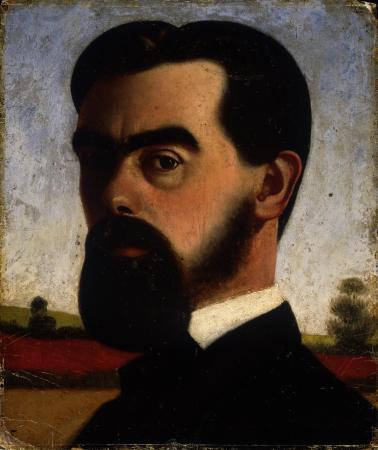“La vie est l’art de tirer des conclusions des prémisses insuffisantes.”
Life is the art of drawing sufficient conclusions from insufficient premises.
en
Samuel Butler était un écrivain britannique principalement connu pour sa satire Erewhon, ou De l’autre côté des montagnes. Wikipedia

“La vie est l’art de tirer des conclusions des prémisses insuffisantes.”
Life is the art of drawing sufficient conclusions from insufficient premises.
en
Life is like music, it must be composed by ear, feeling and instinct, not by rule. Nevertheless one had better know the rules, for they sometimes guide in doubtful cases, though not often
en
“On peut tous faire des grandes choses, si on sait qu’est-ce qu’une grande chose.”
All men can do great things, if they know what great things are.
en
The advantage of doing one’s praising for oneself is that one can lay it on so thick and exactly in the right places.
en
It is far safer to know too little than too much. People will condemn the one, though they will resent being called upon to exert themselves to follow the other.
en
St Anthony tempted the devils quite as much as they tempted him; for his peculiar sanctity was a greater temptation to tempt him than they could stand. Strictly speaking, it was the devils who were the more to be pitied, for they were led up by St Anthony to be tempted and fell, whereas St Anthony did not fall.
en
Life is not so much a riddle to be read as much as a Gordian knot that will get cut sooner or later.
en
Life is a superstition. But superstitions are not without their value. The snail's shell is a superstition, slugs have no shells and thrive just as well. But a snail without a shell would not be a slug unless it had also the slug's indifference to a shell.
en
“C'est facile d'avoir des avis plus justes quand tout le monde les a déjà.”
It's easy to have juster views when everybody else has them.
en
It has, I believe, been often remarked, that a hen is only an egg's way of making another egg.
en
Vice and Virtue, iii
The Note-Books of Samuel Butler (1912), Part II - Elementary Morality
Thinking
The Note-Books of Samuel Butler (1912), Part V - Vibrations
Agonising
The Note-Books of Samuel Butler (1912), Part VII - On the Making of Music, Pictures, and Books
The Art of Covery
The Note-Books of Samuel Butler (1912), Part XI - Cash and Credit
Ramblings In Cheapside (1890)
“Time is the only true purgatory.”
Purgatory
The Note-Books of Samuel Butler (1912), Part XIV - Higgledy-Piggledy
Moral Influence
The Note-Books of Samuel Butler (1912), Part VI - Mind and Matter
“The devil tempted Christ; yes, but it was Christ who tempted the devil to tempt him.”
Further Extracts from the Note-Books of Samuel Butler http://books.google.com/books?id=zltaAAAAMAAJ&q=%22The+devil+tempted+Christ+yes+but+it+was+Christ+who+tempted+the+devil+to+tempt+him%22&pg=PA76#v=onepage, compiled and edited by A.T. Bartholomew (1934), p. 76
The Art of Propagating Opinion
The Note-Books of Samuel Butler (1912), Part X - The Position of a HomoUnius Libri
Sin
The Note-Books of Samuel Butler (1912), Part II - Elementary Morality
Making Notes
The Note-Books of Samuel Butler (1912), Part VII - On the Making of Music, Pictures, and Books
“The world will, in the end, follow only those who have despised as well as served it.”
The World
The Note-Books of Samuel Butler (1912), Part XXIV - The Life of the World to Come
Populus Vult
The Note-Books of Samuel Butler (1912), Part XII - The Enfant Terrible of Literature
Posthumous Life, i
The Note-Books of Samuel Butler (1912), Part XXIV - The Life of the World to Come
“Life is the art of drawing sufficient conclusions from insufficient premises.”
Life, ix
The Note-Books of Samuel Butler (1912), Part I - Lord, What is Man?
Source: Erewhon (1872), Ch. 18
Vice and Virtue, ii
The Note-Books of Samuel Butler (1912), Part II - Elementary Morality
“You can do very little with faith, but you can do nothing without it.”
Faith, ii
The Note-Books of Samuel Butler (1912), Part XXI - Rebelliousness
New Ideas
The Note-Books of Samuel Butler (1912), Part VII - On the Making of Music, Pictures, and Books
Future and Past
The Note-Books of Samuel Butler (1912), Part XIV - Higgledy-Piggledy
“Truth consists not in never lying but in knowing when to lie and when not to do so.”
Falsehood, i
The Note-Books of Samuel Butler (1912), Part XIX - Truth and Convenience
The Credulous Eye
The Note-Books of Samuel Butler (1912), Part IX - A Painter's Views on Painting
Ramblings In Cheapside (1890)
Adam and Eve
The Note-Books of Samuel Butler (1912), Part XVI - Written Sketches
Reputation
The Note-Books of Samuel Butler (1912), Part XIV - Higgledy-Piggledy
“The best liar is he who makes the smallest amount of lying go the longest way.”
Ch. 39 http://books.google.com/books?id=wZAEAQAAIAAJ&q=%22The+best+liar+is+he+who+makes+the+smallest+amount+of+lying+go+the+longest+way%22&pg=PA190#v=onepage
The Way of All Flesh (1903)
“If a man would get hold of the public era, he must pay, marry, or fight.”
Ramblings In Cheapside (1890)
God and Man
The Note-Books of Samuel Butler (1912), Part II - Elementary Morality